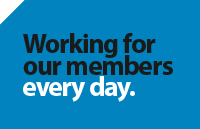 One aspect of working from home is the flex-time that comprises a typical workday. For many roles, a nine-to-five presence is essential, but for others, getting the job done can happen any time of the day—or night.
One aspect of working from home is the flex-time that comprises a typical workday. For many roles, a nine-to-five presence is essential, but for others, getting the job done can happen any time of the day—or night.
That flexibility can lead to a desire to fill extra time with another job, either a side gig that someone develops themselves or, more and more, people applying for, and getting hired at another job. For an employer, this might be considered the ultimate betrayal. But if the job is getting done, how does it matter?
A recent article in The Guardian describes how working at home grew during COVID, and how more and more people, whether dissatisfied with their current job or merely seeking to make the most of their time at home, have taken on one, two, and even three extra jobs.
If you feel you are paying your workers adequately and that pay should reflect their full working commitment, you will definitely not find a good fit for a moonlighting staffer. Especially in roles that require creativity or a commitment to growing the company, any spare time or energy for work should be directed to the job at hand.
The upside here affects both the worker and the job: the company could potentially benefit from that “extra mile” the worker takes, while those strategic ideas and that creative thinking can help boost an individual’s career within the company.
However, as the article points out, working for someone else could violate non-compete agreements. Likewise, the very fact that a worker is concealing something from their boss can lay a lot of stress on that individual. In an age where establishing a life-work balance has become more important than ever, taking on that extra job may feel like one is getting control of one’s life. But it could also jeopardize that individual’s ability to make the most out of their life in other ways.











































